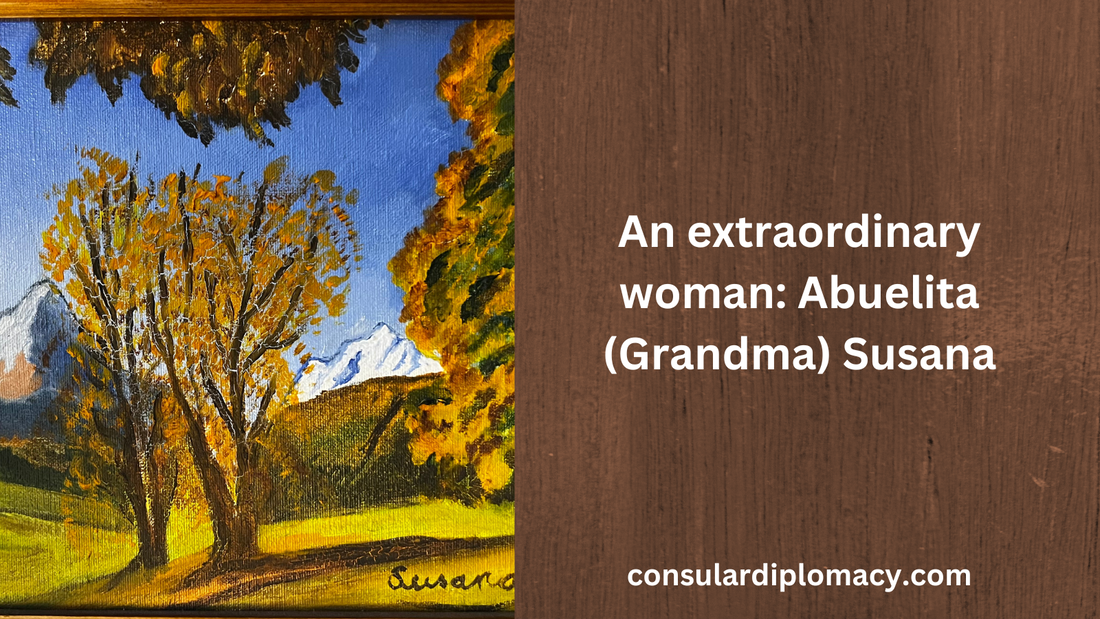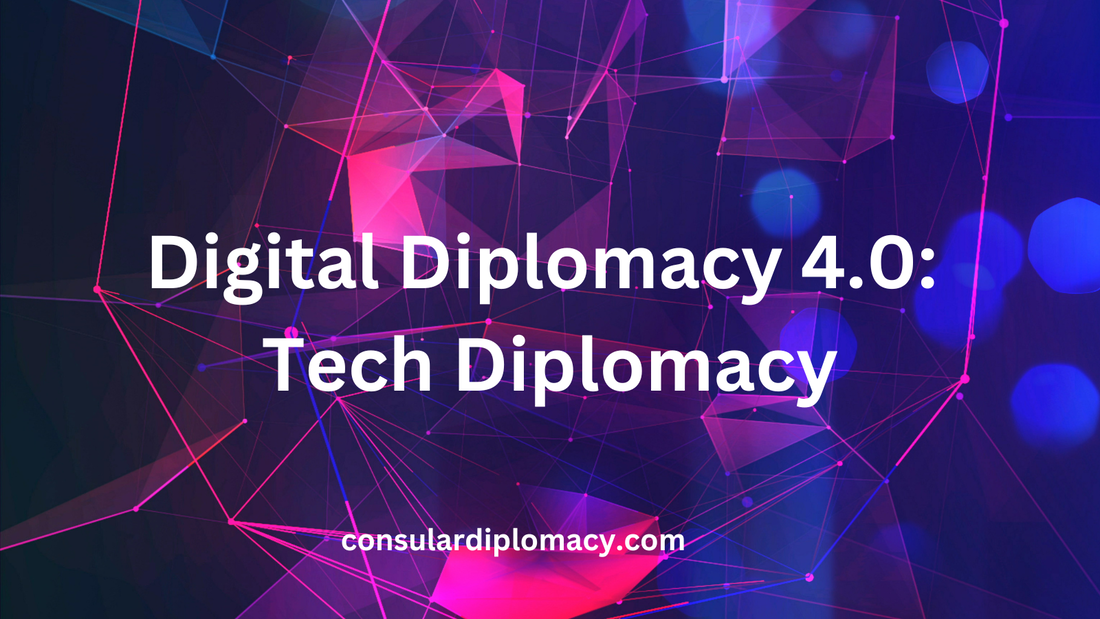 My grandma Susana, or as we call her, abuelita Susana, passed away at the end of 2022 at the age of 102. This week is her birthday, and I want to honor her because she significantly influenced me. Note: Some actions referred to here might be true or just family myths. Regardless they are very treasured! Abuelita Susana was an extraordinary woman of the 20th century. She had a challenging but rewarding life. Susana was born in 1920, at the start of the roaring twenties and after the 1918 pandemic. One of her many attributes was that she was a fantastic storyteller, so we were always looking forward to hearing about her amazing adventures. She was a treasure of stories. One of her earliest stories was about how she spent her weekly allowance buying the “Cuentos de Calleja”. In 2021, I was lucky enough to find two compilations of his work and gave them to her. Mr. Saturnino Calleja was a best seller and icon back in the day. Abuelita Susana was a woman entrepreneur in a mid-size town in the State of Veracruz. She started selling Tupperware and later moved up the ladder and was able to pay for some amazing trips. One of her most cherished voyages was her around-the-world tour in the late 1960s. She traveled to some places that are hard to visit, even today. She went with her sister, and they started in Hawaii. Later they went to see Angkor Wat before the Khmer Rouge took over Cambodia and committed genocide. The next stop was India, where they were received with great surprise as it was uncommon to see two middle-aged women traveling without a man. Afterward, they visited Iran before the Islamic Revolution and Iraq before Saddam Hussein. They took fantastic pictures of their stop in Lebanon, the then “Paris of the East”, before the civil war tear apart the country for many decades. Their last stop was Rome, which seemed dull after the extraordinary places they had visited beforehand. The trip was extraordinary, but even more so was her ability to do it without knowing much English. She visited Paris several times, and she remembered how to get to the hotel from the famous shopping stores by memorizing the shop displays on the way because she still had to learn French. Every time she returned from her travels; she gave me coins from all the countries she visited. That is how I started my coin collection and my interest in traveling. After listening to her adventures overseas, I picked up the Encyclopedia (there were no personal computers or the internet back then) and searched entries about the countries I had coins. It was then that I knew I wanted to travel like abuelita Susana, and I enjoy learning about different nations and their history. It was when I developed the love for maps that I still have today. All my grandparents had the travel bug, especially abuelita Susana, so I didn´t even question why I wanted to travel the world. Furthermore, I was so interested in different countries that I studied International Relations and later became a diplomat. Another facet of her life was art. She was an inherent painter. Every summer, when all her granddaughters and grandsons spent time in her house, she had several activities, including painting classes. Below is one of her paintings. Another quality of abuelita Susana was that she loved reading. Every day, after lunch, she read the local newspaper and was a big fan of history books. She read for as long as I can remember and did it until the day she passed away. She also had a heart of gold. Besides caring for her large family, abuelita Susana was a Red Cross volunteer. For several decades, she visited the hospital to assist in any way she could. Abuelita Susana struggled like most women in the last century but overcame many obstacles. She was as contradictory as the 20th century, with remarkable advances and innovations but also holding to traditions and views that were not politically correct. ¡Feliz cumpleaños abuelita Susana! (Happy Birthday Grandma Susana). DISCLAIMER: All views expressed on this blog are that of the author and do not represent the opinions of any other authority, agency, organization, employer or company.
0 Comments
 As part of the "Digital Diplomacy 4.0" project, today I will write about tech diplomacy, also known as TechPlomacy. In the last few months, the disruptive arrival of the now-famous ChatGPT Artificial Intelligence (AI) software has attracted much attention and discussion about the role of technology in society. Part of the debate has also focused on the impact of technology on diplomacy, including a new approach referred to as TechPlomacy or tech diplomacy. You can read more in my blog post Why Denmark sent a Tech Ambassador to Silicon Valley? In April 2023, the DiploFoundation published the updated version of the study Tech diplomacy practice in the San Francisco Bay Area. The original version is from 2018, a year after Denmark announced the designation of the first tech ambassador, who was responsible for engaging diplomatically with tech giants like Apple, Amazon, Meta (Facebook), and Alphabet (Google) and Silicon Valley's entrepreneurial ecosystem, which includes venture capitalists, think tanks, universities, entrepreneurs, research labs, and other actors. The subject seems very interesting because of several reasons:
The first question that comes to mind is why tech giants are different from other corporations. Blumenthal (2018) explains why tech giants are so powerful nowadays that countries send ambassadors to Silicon Valley. He indicates that "digital platforms govern the spaces they control. And by developing new technologies deployed as platforms, they can govern entirely new spaces before national governments are even aware." So, it is not just their vast amounts of cash or the unreal market capitalization, it is primarily their ability to control the digital space, as no other corporation did before, what separates them from the rest of the businesses. The second issue would be, what is a tech diplomat? It seems an easy question, but the reality is much more complicated. Diplo's study identifies eight different tech diplomats' titles (Ittelson & Rauchbauer, 2023, p. 17). See Table 1 for a detailed view of titles. Table 1: Tech diplomatic representations in Silicon Valley.
Note: *The office has a global mandate. Source: Ittelson & Rauchbauer, 2023. Ilan Manor, a respected digital diplomacy expert and blogger, explains that a tech diplomat should be "a diplomat who has been trained in using advanced technologies, [who is] able to leverage existing technologies to obtain foreign policy goals [and] is trained in dealing with technology-related policies, such as regulating social media and combating disinformation" (Manor, 2023). Denmark's experience is telling, as the first tech ambassador struggled with some tech giants. For example, the tech ambassador recalled taking off the tie to be less formal, while the tech company representative wore shorts and flip-flops (Johnson, 2019). He also referred to scheduling a meeting with a senior executive to discuss specific technology topics. To his dismay, when he arrived, he was offered a tour of the building and some company souvenirs (Satariano, 2019). Later, Denmark issued the Strategy for Denmark's Tech Diplomacy 2021-2023, which expanded the responsibilities of its tech diplomacy, including issues related to democracy and security. It also made some changes, including involving more embassies and consulates, establishing an advisory board, and adding a citizens' engagement component (Government of Denmark, 2021, p. 10). It was a different perspective than when the MFA named the first tech ambassador. Listen to the podcast A Conversation with Denmark's Tech Ambassador to learn more about the current priorities (April 2023). In September 2022, the European Union designated its first Senior E.U. Envoy for Digital to the U.S., posted in San Francisco's Bay area. More recently, in April 2023, the U.S. State Department's Bureau of Cyberspace and Digital Policy announced posting cyber and digital officers in every embassy and special training for diplomats. Meanwhile, "China created a network of around 140 specialised diplomats to identify and support the acquisition of emerging tech companies and technologies across the globe" (Erzse & Garson, 2022, p. 13). Diplo's 2023 report on Tech diplomacy in Silicon Valley is a must-read for anybody interested in the current state of affairs. The study analyzes the practices, challenges, and opportunities. It also includes different ways countries instrument this idea. It is a bit concerning that most of them are from the Global North (Ittelson & Rauchbauer 2023 p. 17); therefore, Global South nations might be falling behind, particularly with recent extraordinary advances in artificial intelligence. But there is hope. Now, Diplo and the recently established Tech Diplomacy Network offer a course on the subject to help bridge the gap. I am excited to participate in the course as a student starting this week. Through practices that have lasted centuries, diplomacy and diplomats have established a common culture and even a "language" that is now codified in the Vienna Convention on Diplomatic Relations. Tech diplomacy has yet to find a standard definition; therefore, there is still a lack of understanding and awareness on both sides, diplomats and corporate executives. However, the first step, dialogue, is being developed through these initiatives. For example, representation, one of the three functions of diplomacy, can be confusing from a corporate perspective. It is hard to know who the company represents. The logical response is that it represents the shareholders, but there are not that visible, with a few exceptions. Nowadays, many use the term stakeholders, but it needs to be clearly defined. Usually, the Chief Executive Officer and the executive board are the ones who make decisions and can be seen as representatives of the business. However, sometimes, they have a narrow vision, which significantly impacts their operations. Look at what they did to Twitter a few months ago. Technology is evolving extremely fast, and governments, societies, and diplomats are lagging. There is a greater push for regulation and ethical usage to avoid the continuation and expansion of disparities, discriminatory practices, and even human rights violations and the deterioration of democracy. It is comforting that, through different schemes and venues, there is a greater dialogue between the tech giants and governments. This conversation should also include civil society, particularly from diverse backgrounds, to find real solutions to today's challenges. Diplomats and MFAs need to shake up and embrace technology, not only in the West but across the globe. Manor proposes the creation of a Digital Desk that "would run an MFA's digital activity [including] oversee consultations in UNESCO dealing with ethical A.I. development…and formulate digital policies" (2023). This could be the starting point for a new, inclusive Tech diplomacy. In the next delivery of the "Digital Diplomacy 4.0" project, I will write about the basics of AI and, later on, about the link between diplomacy and A.I.diplomacy-40-how-artificial-intelligence-is-changing-diplomacy.html. You can read more about the power of tech giants in my blog post about AI and geopolitics here: diplomacy-40-navigating-the-ai-era-geopolitics-diplomacy-and-the-power-of-artificial-intelligence.html Do not forget to read some other posts about the subject:
Below is a list of some resources on Tech diplomacy that can be useful for anybody interested in the topic. Let me know if I missed one, or send your suggestion via comments or email. RESOURCES ON TECH DIPLOMACY: Online course: Tech Diplomacy. The DiploFoundation. Research Center Krach Institute for Tech Diplomacy at Purdue University, U.S. Network Tech Diplomacy Network. A joint effort by the Berggruen Institute, the World Economic Forum (C4IR), the Bay Area Council Economic Institute, and the DiploFoundation. Interview with Denmark's Tech Ambassador (Podcast): Radsch, C. (Host) (2023, April 23). A Conversation with Denmark's Tech Ambassador -Anne Marie Engtoft Larsen-. Audio Podcast Episode, Tech Policy Press. Studies and articles: Bremmer, I. & Kupchan, C. (2022, January 3). Risk 2: Technopolar World. Top Risks 2022. p. 5-6. Euroasian Group. Erzse, A. & Garson, M. (2022). A leader's guide to building a tech-forward foreign policy. Tony Blair Institute for Global Change. Farrow, R. (2023, August 21). Elon Musk´s Shadow Rule. How the U.S. government came to rely on the tech billionaire—and is now struggling to rein him in. The New Yorker. Garcia, E. V. (2022, June 14). What is tech diplomacy? A very short definition. Beyond the Horizon Blog. Giles, K. (2023, September 12). Tech giants hold huge sway in matters of war, life and death. That should concern us all. The Guardian. Gruver, P. (2022). Korea-U.S. international exchange and cooperation in tech diplomacy; Tech diplomacy: Tech companies as power brokers in the digital age. Pacific Council on International Policy. Höne, K. (2023, March 6). What is Tech Diplomacy? Israel Public Policy Institute. Ittelson, P. & Rauchbauer, M. (2023). Tech diplomacy practice in the San Francisco Bay Area. The DiploFoundation. Klynge, C., Ekman, M. & Juncher Waedegaard, N. (2022). Diplomacy in the Digital Age: Lesson from Denmark's TechPlomacy Initiative. In Christian Lequesne, Ministries of Foreign Affairs in the World: Actors of State Diplomacy, (pp. 263-272). Brill. Manor, I. (2023, April 25). What is a Tech Diplomat? Exploring Digital Diplomacy Blog (Digdipblog). Marcus, G. (2023, November 23). Critical national security questions should not be decided unilaterally by unelected tech leaders. Marcus at AI. Matania, E. & Sommer, U. (2023, November 20). Tech titans, cyber commons and the war in Ukraine: An incipient shift in international relations. International Relations, 0 (0). https://doi.org/10.1177/00471178231211500 Mind the Bridge. (2022). Government innovation outposts in Silicon Valley: 2022 report update. REFERENCES Blumenthal, P. (2018, June 23). Big tech companies are so powerful that a Nation sent an Ambassador to them. Huffington Post. Government of Denmark. (2021). Strategy for Denmark's Tech Diplomacy 2021-2023. Ittelson, P. & Rauchbauer, M. (2023). Tech diplomacy practice in the San Francisco Bay Area. The DiploFoundation. Johnson, K. (2019, October 8). Tech giants, small countries, and the future of techplomacy. Venture Beat. Satariano, A. (2019, September 3). The world's first Ambassador to the tech industry. The New York Times. DISCLAIMER: All views expressed on this blog are that of the author and do not represent the opinions of any other authority, agency, organization, employer or company.  After participating in the Summit on Digital Diplomacy and Governance organized by DiploFoundation (see my blog post here), I realized that today’s diplomats need to not only know about the current trends in technology and their impacts on diplomacy but also need to be able to actively participate in the discussions, such as the UN’s Global Digital Compact. Therefore, in the coming months, I will work on a special project titled "Digital Diplomacy 4.0." The well-known digital diplomacy scholar Corneliu Bjola explains that we are now in the fourth iteration of digital diplomacy. The first occurred with the Arab Spring, showcasing social media’s impact on the real world. The second wave happened in 2015 and 2016, with the appearance of the “dark side” of technology and its effects on the U.S. presidential election and the Brexit vote (Bjola, 2022). The COVID-19 pandemic launched digital diplomacy 3.0, with the ubiquitous use of Zoom and other platforms that allowed continuous interactions among diplomats and other international actors when the world shut down (Bjola, 2022). Prof. Bjola indicates that today digital diplomacy has moved forward to a new phase, what I call 4.0, due to the arrival of disruptive innovations such as Artificial Intelligence and the Metaverse (Bjola, 2022). As their predecessors, these new technologies will considerably impact the digital and real worlds. The idea is consistent with the Highlights from the Summit on Digital Diplomacy and Governance that took place in November 2022. Since then, the arrival of ChatGPT has turned the world upside down. It is amazing the speed that things are happening. In the last months, there has been a tremendous number of events to discuss the impact of AI on everything. Here are some of them:
Diplomats worldwide cannot wait until these new technologies mature to embrace them, and they need to take the bull by the horns and start learning these disruptive inventions. The DiploFoundation is an excellent resource, and it is ahead of most capacity-building institutions that perfectly combine courses on technology and internet governance, and diplomacy. Besides, governments need to work on their digital strategies, and the ministries of foreign affairs need to incorporate them into their foreign policy and diplomatic efforts. Some countries, like Switzerland, have already are working on them and in late 2020 presented its digital foreign policy strategy. Here are some resources that I found extremely useful to start diving into the realm of digital diplomacy 4.0:
In the coming days, I will discuss Technology Diplomacy or TechPlomacy. Here is my previous blog post about the subject. Reference: Bjola, C. (2022). Stratcom-Talks, Episode 29 (podcast interview). DISCLAIMER: All views expressed on this blog are that of the author and do not represent the opinions of any other authority, agency, organization, employer or company. |
Rodrigo Márquez LartigueDiplomat interested in the development of Consular and Public Diplomacies. Archives
May 2024
Categories
All
|

